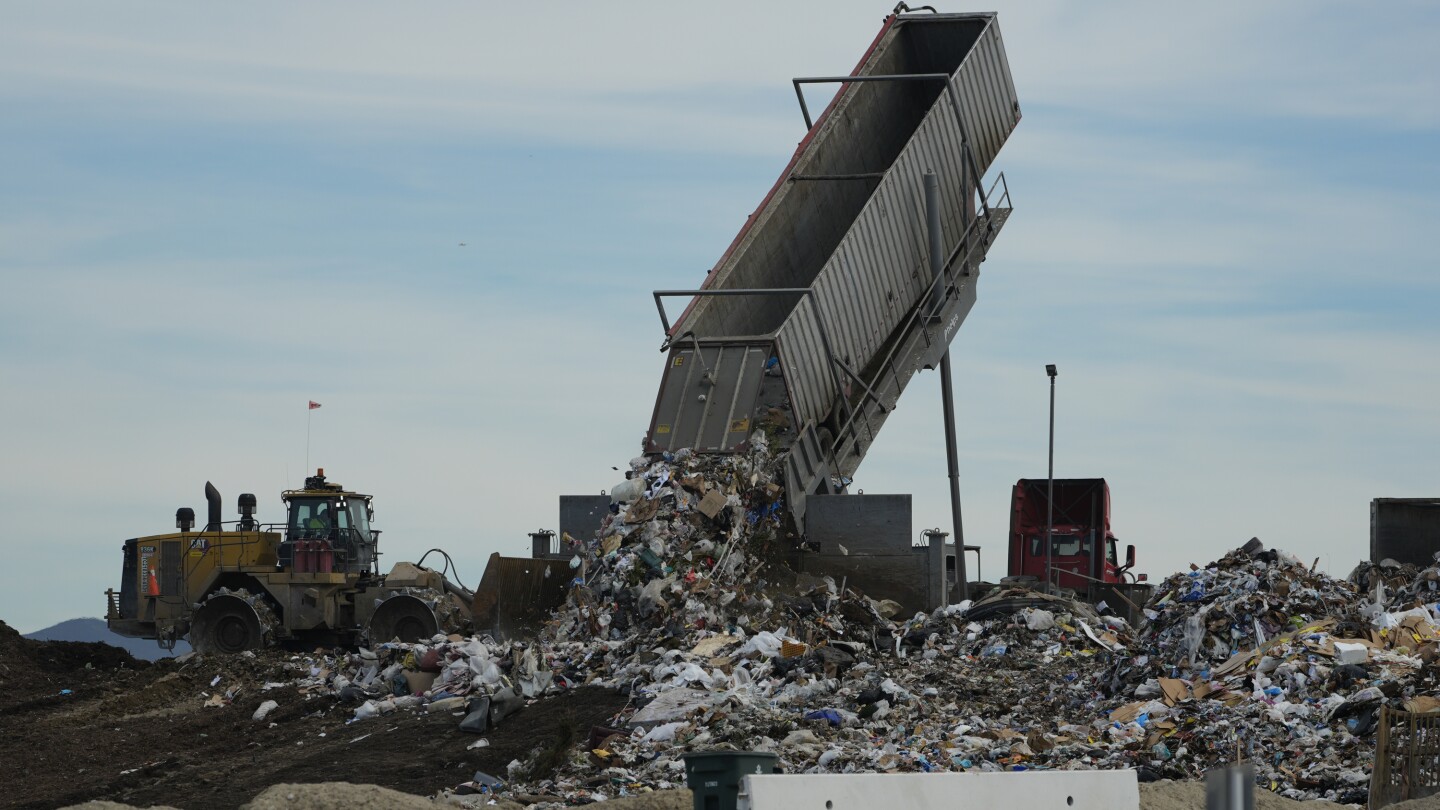Two years after California launched an effort to keep organic waste out of landfills, the state is so far behind on getting food recycling programs up and running that it’s widely accepted next year’s ambitious waste-reduction targets won’t be met.
Over time, food scraps and other organic materials like yard waste emit methane, a gas more potent and damaging in the short-term than carbon emissions from fossil fuels. California’s goal is to keep that waste from piling up in landfills, instead turning it into compost or biogas.
Everything from banana peels and used coffee grounds to yard waste and soiled paper products like pizza boxes counts as organic waste. Households and businesses are now supposed to sort that material into a different bin.
Headline: “is it too much, too fast?”
Article: “But it has been hard to change people’s behavior in such a short period of time and cities were delayed setting up contracts to haul organic waste due to the pandemic. In Southern California, the nation’s largest facility to convert food waste into biogas has filed for bankruptcy because it’s not getting enough of the organic material.”
So I guess the answer to the headline is “not enough, too slow.”
The answer to a question in the headline is always no.
There’s an occasional yes in there, so clarification is beneficial.
I get you, but I think the implication is the infrastructure was set up too fast, before the public sentiment was there to use it. This is why recycling efforts (including this) should be state funded.
I’m all for it, but because I’m in a condo there’s no compost collection for our building.
This is a good thing — not too much or too fast. Presorting organics keeps stuff out of the landfill, and turns it into useful fertilizer that can be sold or given away for free.
Removed by mod
I don’t see why this wouldn’t be part of fixing several environmental issues - reduce the use of landfills, reduce methane from landfills, take part of the market back from chemical fertilizers, reduce the volume of waste. It’s something individuals can do to improve their local environment





